The weekend’s near! You’re already planning your days off. You’re probably going to study. Maybe you’ll go on a day trip or just stay in Augsburg and spend your time here? Most likely, the weekend is something you don’t plan very precisely. Well, when you go home each weekend, things don’t work like this. Even though they probably shouldn’t, your plans already take shape on Monday, eventually forcing you to rethink your situation:
This Friday, I’ll hope to get the earlier train
Of course, you’ve tried to outsmart Digicampus and get Friday off. But sometimes this doesn’t work, so you have to attend uni on Friday and hope to get your tram to the train station in time. And even if your train trip only takes one and a half hours, getting the later train will mean that you’ll have less time with your family in the evening.
Saturday is going to be busy.
If your family members live as closely to each other as mine, my Saturday schedule might seem familiar to you: first, you have a late breakfast with your family, already suspecting that the day might turn out to be stressful. At midday, you go get the groceries for your grandparents and spend some time with them, chatting about the past week at uni, a certain president’s failures, and the most recent Bundesliga news. In the evening, you visit your other grandparents to have dinner with them. After dinner, it’s time to finally meet the gang and go out, and depending on how busy Sunday will be, you might, of course stay out a bit longer.
Sunday ain’t fun-day…
 After an even later breakfast on Sunday, the bags have to be packed. Being tired (and sometimes a bit hungover), you realize what’s coming: a train ride, lasting longer than an eternity; then a tram ride, most often packed with smelly people next to you; an exhausting walk home, because you don’t have one of those trendy suitcases with wheels on them and your bag gets heavier and heavier with each step you take. You’re finally there, so you unpack your bags, put your home-laundered clothes into your wardrobe, and store the food you brought in your fridge. Sleepily, you sink into your bed and as you’re about to fall asleep, you suddenly remember: there was homework due tomorrow!!!
After an even later breakfast on Sunday, the bags have to be packed. Being tired (and sometimes a bit hungover), you realize what’s coming: a train ride, lasting longer than an eternity; then a tram ride, most often packed with smelly people next to you; an exhausting walk home, because you don’t have one of those trendy suitcases with wheels on them and your bag gets heavier and heavier with each step you take. You’re finally there, so you unpack your bags, put your home-laundered clothes into your wardrobe, and store the food you brought in your fridge. Sleepily, you sink into your bed and as you’re about to fall asleep, you suddenly remember: there was homework due tomorrow!!!
But is it really worth it?
This advice might be helpful, especially if you’re new to being a student: commuting home over the weekend sure is great because you get to see your family, your hometown friends and feel the nostalgic, regional vibe of your home. But if you don’t manage to take one step back from your family responsibilities after moving out, your weekly trip home will be exhausting rather than relaxing. And even though it might hurt in the beginning, you’ll eventually have to focus on one of those two worlds because if you continue like this, homework won’t be the only thing you’ll miss out.
It’s your decision!
Sooner or later, you’ll find out that staying in Augsburg for the weekend more often will benefit you: you’ll be less distracted from your studies, your weekends will be more relaxing, and maybe it’s going to be easier for you to make friends here. This is why, from my personal experience, I can say that for the sake of your student as well as your private life, it’s important to find the right balance between going home and staying in Augsburg. Your family will always be your family, no matter where you are, so they’ll understand. It’s only natural that you’ll have a hard time figuring it out at first, but I’m sure you’ll eventually sort this out and succeed in your new, exciting life, too!
Text & Pictures: Marcus Wiesenhofer

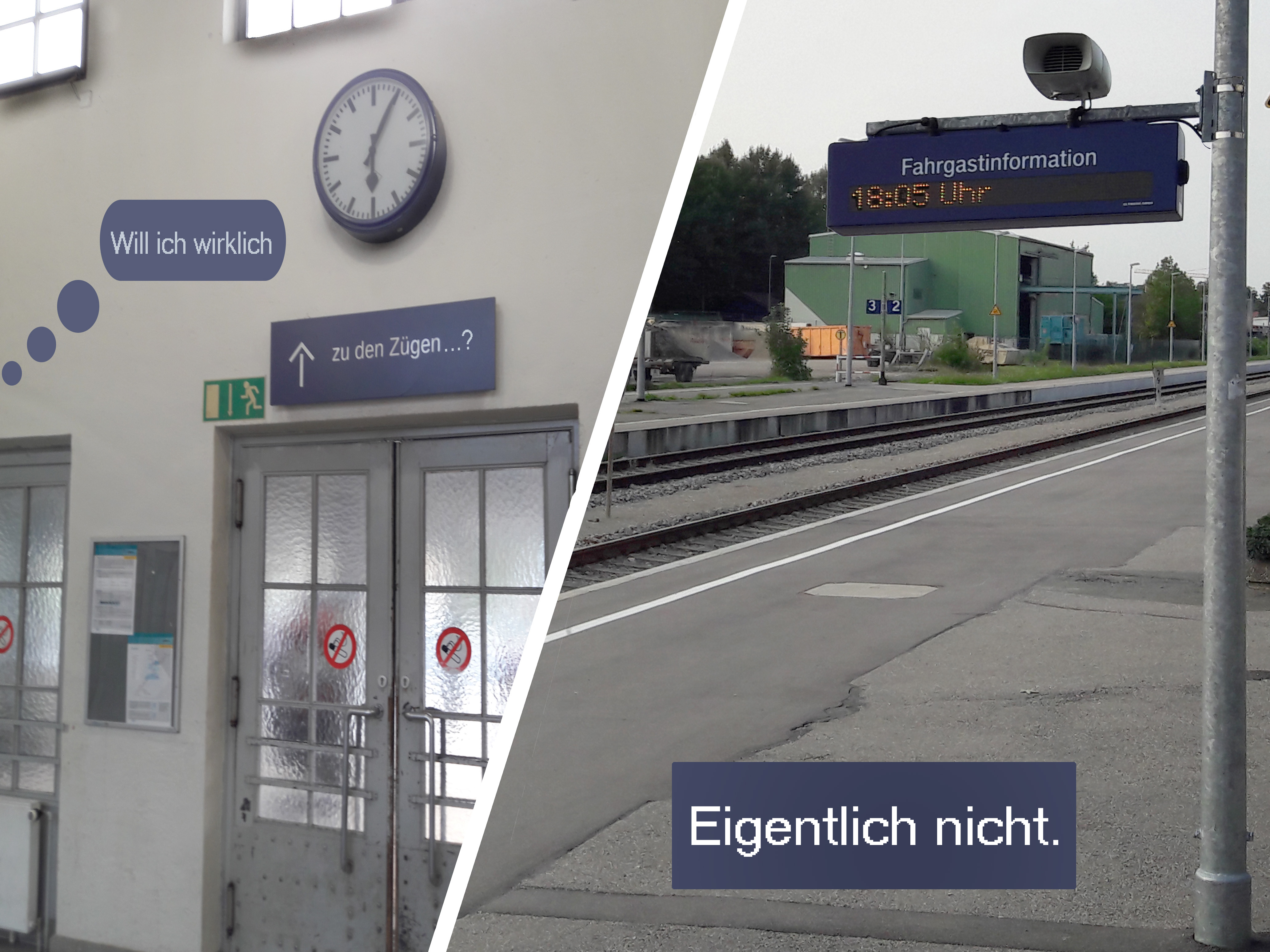

 About 20,000 students populate the University of Augsburg, which means different people from all over the world, who, at first sight, have almost nothing in common. Well, they’re all students, of course – mammals with particular habits, such as the mass migration from the campus buildings to the Mensa at 1.16 PM. So, as I’ve spent a lot of time in lectures and courses, it’s quite simple to divide the student animal kingdom into three main categories…
About 20,000 students populate the University of Augsburg, which means different people from all over the world, who, at first sight, have almost nothing in common. Well, they’re all students, of course – mammals with particular habits, such as the mass migration from the campus buildings to the Mensa at 1.16 PM. So, as I’ve spent a lot of time in lectures and courses, it’s quite simple to divide the student animal kingdom into three main categories… 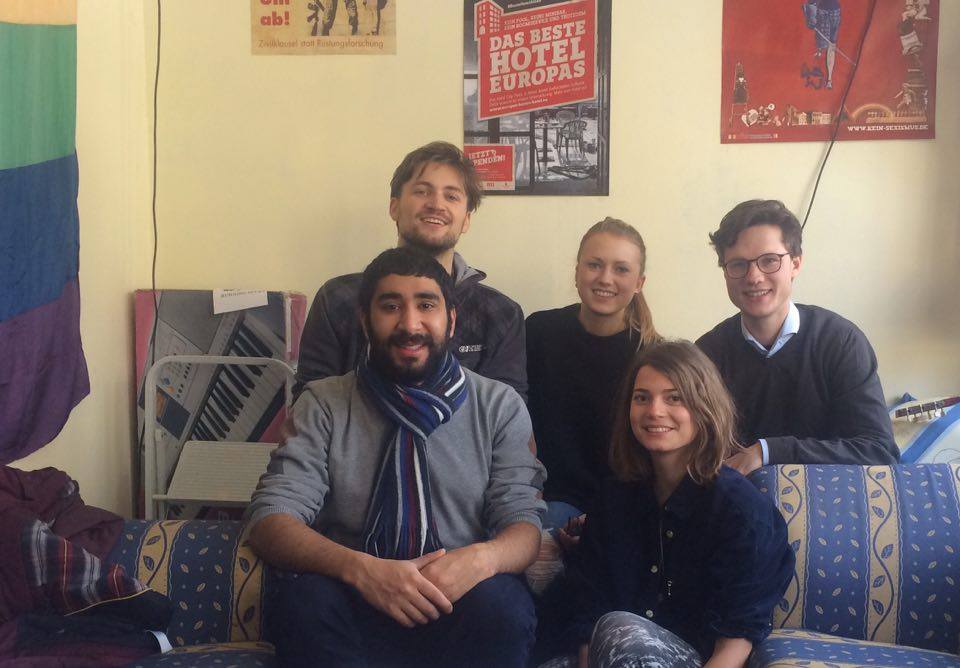
 When I started to study, I didn’t realize how many different ways of volunteering there are. Since I had to give up my voluntary work in my hometown, I wanted to get involved again. A friend took me to the Sozialreferat at the University of Augsburg. From the beginning, I was enthusiastic about their ideas and I’m convinced that if they’re implemented, they’ll benefit students a lot. But see for yourself…
When I started to study, I didn’t realize how many different ways of volunteering there are. Since I had to give up my voluntary work in my hometown, I wanted to get involved again. A friend took me to the Sozialreferat at the University of Augsburg. From the beginning, I was enthusiastic about their ideas and I’m convinced that if they’re implemented, they’ll benefit students a lot. But see for yourself…


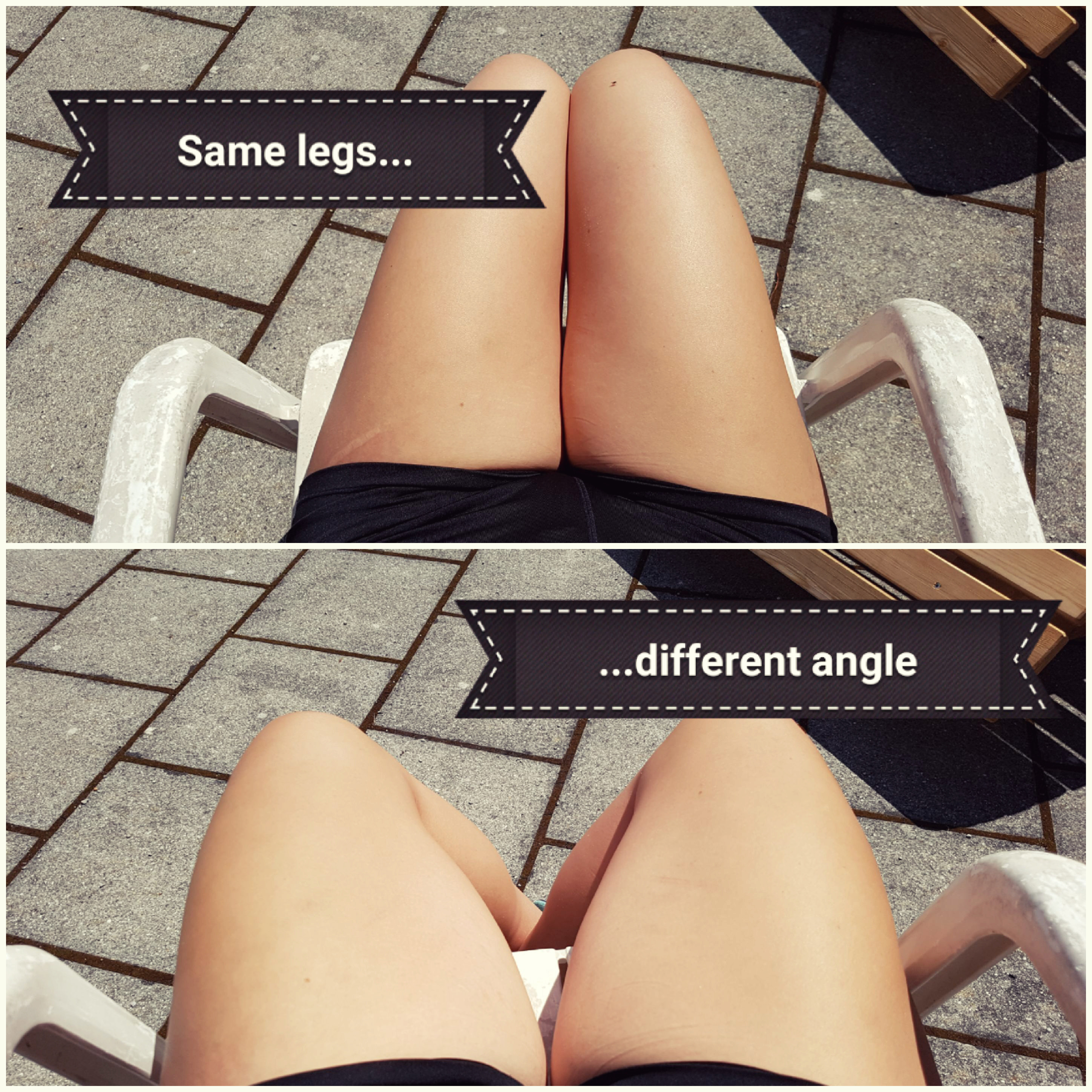

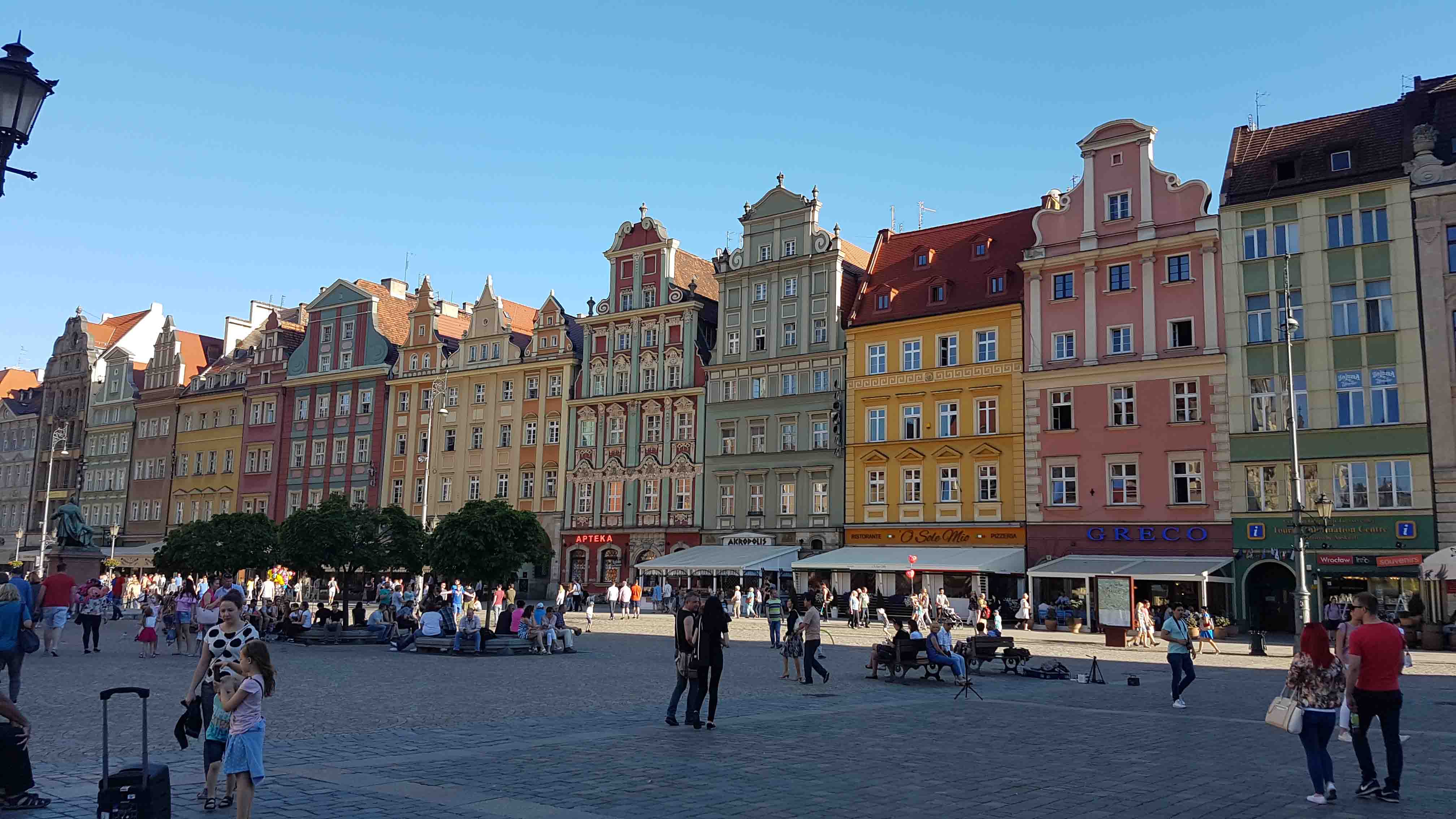
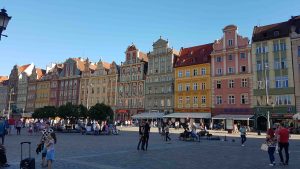 You might be asking yourself why, of all great cities in Europe, I chose to write about Wroclaw. Although I was born in Warsaw and grew up in Germany, I’ve spent all my summers in Wroclaw with my grandparents. The city has always meant a lot to me and I feel like it’s not getting enough recognition, especially among younger people. If you’re planning to visit Poland some time, and have Warsaw or Gdansk in mind, let me tell you that Wroclaw is a much better alternative and has a lot more to offer, especially for university students.
You might be asking yourself why, of all great cities in Europe, I chose to write about Wroclaw. Although I was born in Warsaw and grew up in Germany, I’ve spent all my summers in Wroclaw with my grandparents. The city has always meant a lot to me and I feel like it’s not getting enough recognition, especially among younger people. If you’re planning to visit Poland some time, and have Warsaw or Gdansk in mind, let me tell you that Wroclaw is a much better alternative and has a lot more to offer, especially for university students. 724 kms north-east of our beloved Augsburg lies a city packed with culture, delicious food, craft beer and dwarfs. Dwarfs? Why yes one of Wroclaw’s trademarks is little dwarf statues, which are spread all around the city. They can serve as a guideline to explore the city or just be stumbled upon while walking around freely. Just make sure to keep an eye out for them.
724 kms north-east of our beloved Augsburg lies a city packed with culture, delicious food, craft beer and dwarfs. Dwarfs? Why yes one of Wroclaw’s trademarks is little dwarf statues, which are spread all around the city. They can serve as a guideline to explore the city or just be stumbled upon while walking around freely. Just make sure to keep an eye out for them. Summer is one of the best times to travel and explore new cities, but what if it gets too hot? Well worry not, there are a lot of different ice-cream shops around the city, among them Ice Rolls Wroclaw. Made right before your eyes, the fresh, creamy deliciousness will not only cool you down but make you enjoy ice cream in an entirely new way.
Summer is one of the best times to travel and explore new cities, but what if it gets too hot? Well worry not, there are a lot of different ice-cream shops around the city, among them Ice Rolls Wroclaw. Made right before your eyes, the fresh, creamy deliciousness will not only cool you down but make you enjoy ice cream in an entirely new way.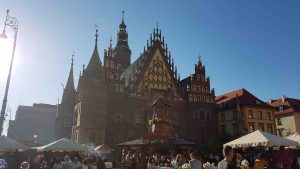

 In recent years Iceland had been in the news a few times, especially during the European Football Championship 2016, when as many as 10% of the nation’s total population visited France to cheer for their team and subsequently charmed the other nations with their jovial demeanor. This, in turn, caused a surging interest in Iceland, especially in vacations there. Even the author of this article, otherwise couchpotato extraordinaire, got interested and took a hiking trip on the island.
In recent years Iceland had been in the news a few times, especially during the European Football Championship 2016, when as many as 10% of the nation’s total population visited France to cheer for their team and subsequently charmed the other nations with their jovial demeanor. This, in turn, caused a surging interest in Iceland, especially in vacations there. Even the author of this article, otherwise couchpotato extraordinaire, got interested and took a hiking trip on the island. Small-town charm
Small-town charm
